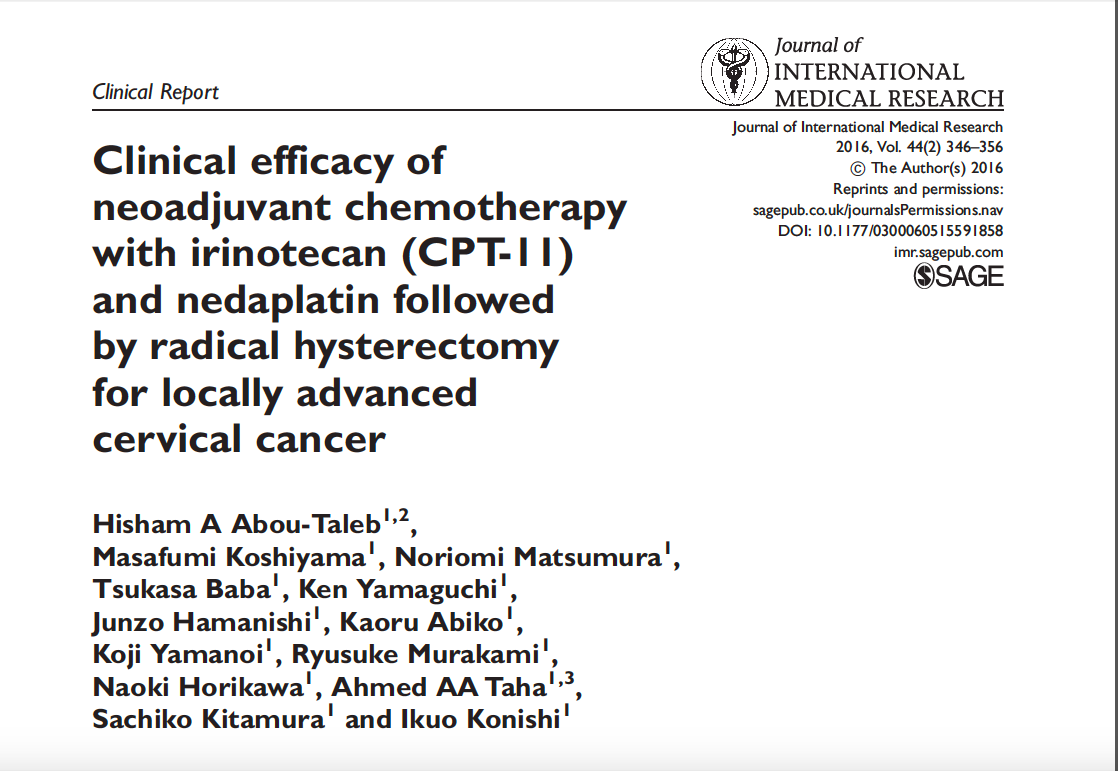Objective: To investigate the clinical efficacy of neoadjuvant chemotherapy (NAC) with irinotecan (CPT-11) and nedaplatin (NED) followed by radical hysterectomy.
Methods: Patients with locally advanced cervical cancer (stage Ib2–IIb) were treated with NAC followed by surgery, primary surgery or primary radiotherapy. NAC was usually performed using transuterine arterial chemotherapy (TUAC) or intravenous CPT-11/NED. Survival rates were analysed in the three treatment groups; response rates and adverse events associated with NAC, TUAC and CPT-11/NED were compared, along with previously reported adverse events of chemoradiotherapy.
Results: A total of 165 patients with cervical cancer were recruited. Of these, 70 were treated with NAC followed by surgery (48 with CPT-11/NED, 18 with TUAC and four with other types of chemotherapy), 73 were treated with primary surgery and 22 with primary radiotherapy (including chemoradiotherapy). There were no significant differences in progression-free survival or overall survival rates between the three treatment groups. The response rates for the NAC regimen of CPT-11/NED and TUAC were high (75% and 78%, respectively). The frequency of severe thrombocytopenia was lower in patients receiving CPT-11/NED compared with TUAC, and the
incidence of severe anaemia, vomiting and cystitis was lower in patients receiving CPT-11/NED compared with chemoradiotherapy.
Conclusions: The use of CPT-11/NED as a NAC regimen shows favourable activity, with lower
toxicity compared with NAC using TUAC or chemoradiotherapy, for the treatment of locally
advanced cervical cancer.


